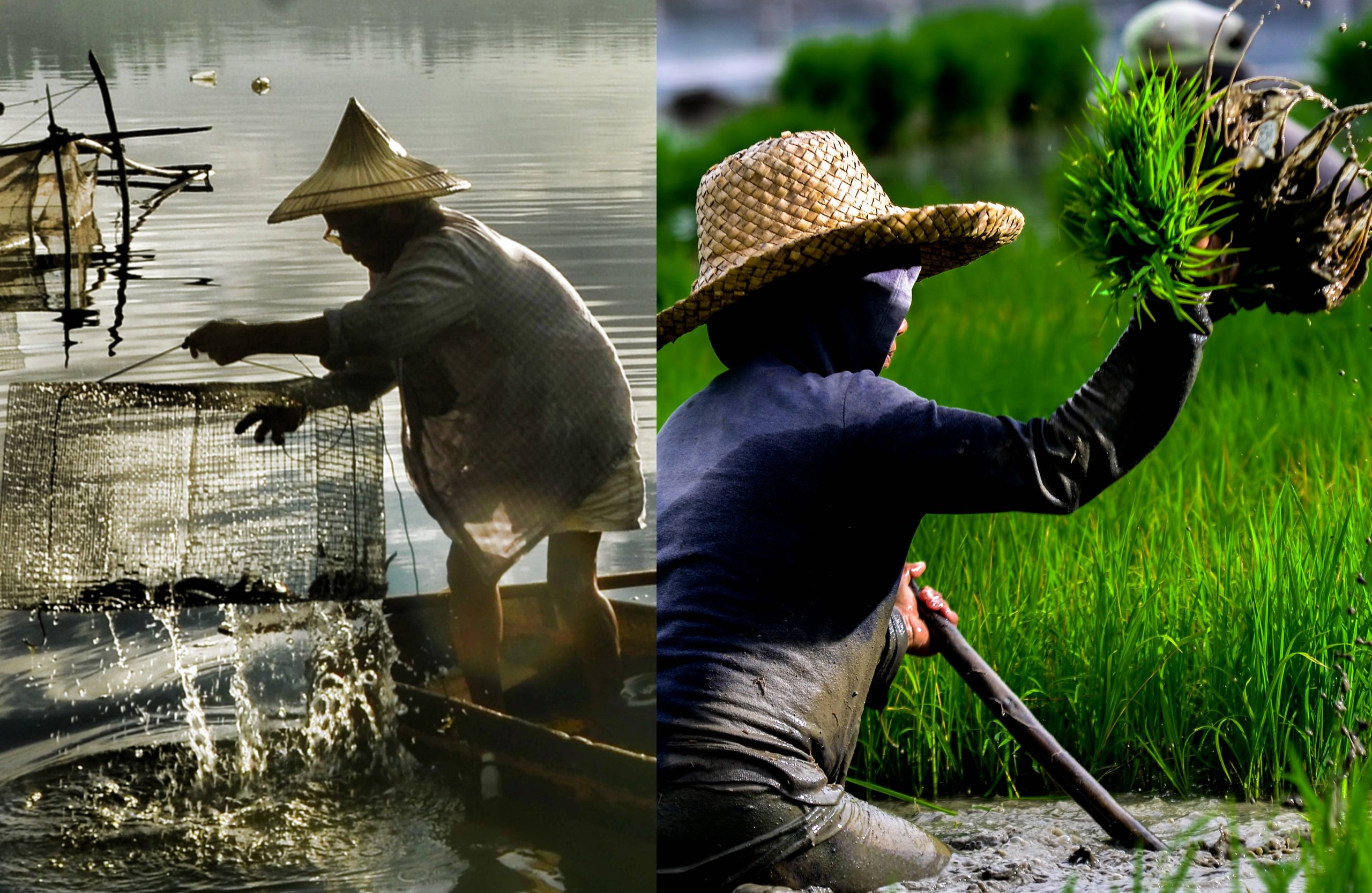
The Department of Agriculture (DA) will strongly pursue climate-resilient agricultural technologies and systems to sustain productivity, ensure more incomes of farmers and fisherfolk, and ensure national food security.
“Extreme weather, widely considered as the ‘new normal,’ has already and will continue to impact on the country’s agriculture and fishery sector, and national food security,” said Agriculture Secretary William D. Dar.
“Hence, since August 5, when we assumed office, I have instructed all Department of Agriculture agencies to do away with the business as usual attitude, and asked them to level up,” said the DA chief.
The “DA Family” includes regional field offices (RFOs), bureaus, attached agencies and corporations, commodity banner programs, DA-OSEC services, and other units, and foreign- and locally-funded projects.
“All members of the DA Family should adapt to our ‘new thinking for agriculture’ and imbibe the eight paradigms to attain our vision of a food-secure Philippines with prosperous farmers and fisherfolk,” said Secretary Dar.
“Further, they should adjust and transform in order to level up climate-resilient agriculture,” he added, citing that the DA-Systems Wide Climate Change Office (SWCCO) will conduct a workshop on February 18, in Quezon City.
Early this year, he ordered the expansion and upscaling of the DA-Adaptation and Mitigation Initiatives in Agriculture (AMIA) strategy to municipal, provincial and regional levels to test climate-resilient agriculture programs.
“We need science-based and evidence-based options and actions that we can easily provide to all our stakeholders. The creation of more AMIA villages is one of the strategies that the DA is adopting to address the challenges of climate change,” he said.
AMIA villages are where climate-resilient agricultural programs are pilot-tested. Data collected from these villages will be used for scaling-up in areas with compatible profiles.
“In all, we should provide farmers and fisherfolk and LGUs weather information and advisories to optimize production and minimize losses,” he said.
“The DA-RFOs should learn from the success of DA-RFO 5 or Bicol region, as it has perfected the Climate Information Service (CIS) model to generate weather and climate farm and fishing advisories,” he added.
“It has helped stakeholders in the Bicol region in planning their farm and fishing activities, and guiding them in their decision-making to avoid losses in farm inputs and crop damage,” he said.
“The DA-RFO5 CIS, as well as other working models, should be made available to all regions, municipalities, and barangays,” he added.
Meanwhile, he recently renamed the DA-SWCCO to Climate Resilient Agriculture Office (CRAO) that will provide strategic direction and oversight in the mobilization of resources and capacities towards achieving the DA’s climate change agenda.
The DA-CRAO is headed by Director Alicia Ilaga of the Agriculture Credit Policy Council (ACPC), in a concurrent capacity.
Secretary Dar said Ilaga’s 22-year experience in formulation, implementation, and oversight of agricultural policies on credit and livelihood, biotechnology and climate change would help CRAO in overseeing the provision of well-planned, coordinated and responsive support services in the establishment and expansion of the AMIA strategy.
He instructed all DA family agencies to provide the necessary support to CRAO – including technical, infrastructure, research and development, financing, insurance, marketing and extension services.
In particular, the DA chief issued the following instructions:
- DA-PhilRice to provide farmers climate-resilient seed varieties to make them more productive and competitive;
- DA-PhilMech to provide farmers’ cooperatives and associations (FCAs) post-harvest facilities and other farm machineries to improve the coping ability of vulnerable communities;
- DA-ACPC to develop adaptation financing packages to suit the needs of vulnerable farmers, within and outside AMIA areas; and
- DA-PCIC to insure beneficiaries and compensate them if and when the government’s adaptation interventions fail.
“It is high time for the PCIC to study and reformulate, if not develop totally new insurance packages, to cope with the changing times,” he said.
Also, the climate change initiatives should include clustering and consolidation of small and medium-sized farms to attain economies of scale, he added.
“This will give our farmers greater bargaining power rather than be disadvantaged by unscrupulous traders,” he concluded. ### (DA Communications Group)














